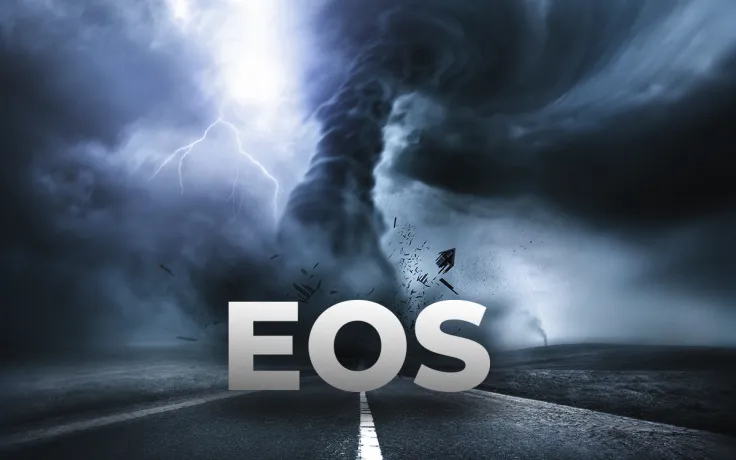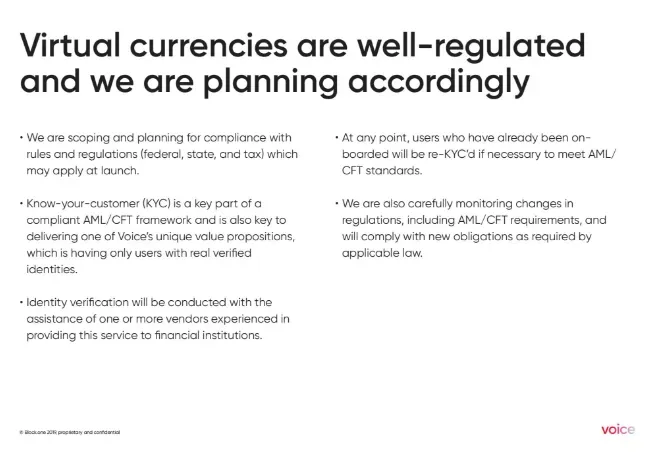
Jacque Whales, web-developer of an EOS-based forum Discussions.app published a detailed post to outline the disadvantages of the Voice social media platform by Block.one.
SEC approval means draconian KYC policy
First of all, Mr. Whales is concerned about the decision of Block.one to meet the demands of the U.S. Securities and Exchange Commission (SEC). This body investigates any kind of digital asset that is somehow available to the U.S. citizen.
To offer its tokens within the U.S., Block.one needs to impose strict regulations in the KYC ('know-your-customer'), AML ('anti-money-laundering') and CFT ('combating the financing of terrorism') spheres. According to the official presentation of the Voice platform, it will comply with 'federal, state and tax' regulations.

But at what cost? Jacque Whales emphasizes that Voice will ask its potential users to provide a government issued ID and a proof of address. In this case, he admits, 'none of my friends will go through all this just to use a social media platform'.
The one and only use-case for Voice
These requirements are accompanied by a very strict moderation policy. Those who upload restricted content, will be punished by 'cancelling' their tokens. Literally, you can lose your money just because of a moderator's decision.
Given all of this, Mr. Whales has determined the only sphere the Voice platform will be used in.
Voice is designed for citizen journalists.
This will be important, as a system like Voice can punish those who publish fake news and reward those who decide to play a fair game. Moreover, it's not a coincidence that Salah Zalatimo, ex-head of Forbes was picked as the Voice CEO, Mr. Whales concluded.

 Gamza Khanzadaev
Gamza Khanzadaev Alex Dovbnya
Alex Dovbnya Arman Shirinyan
Arman Shirinyan